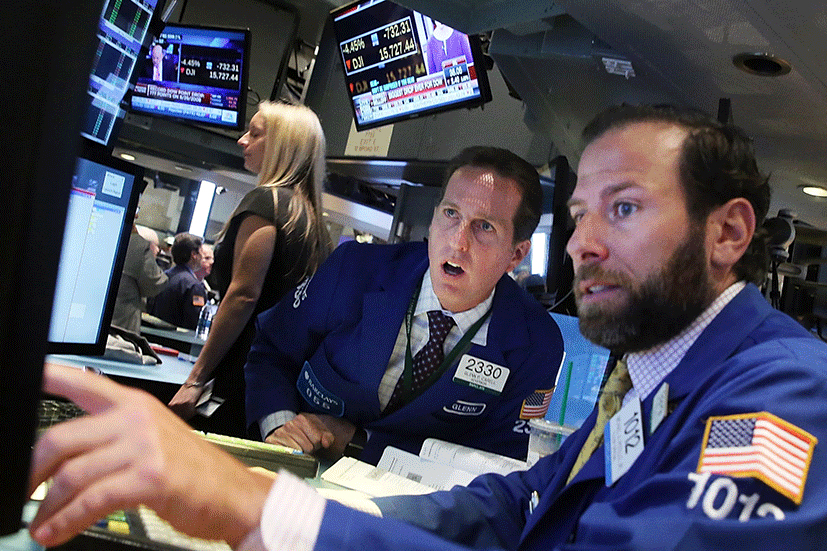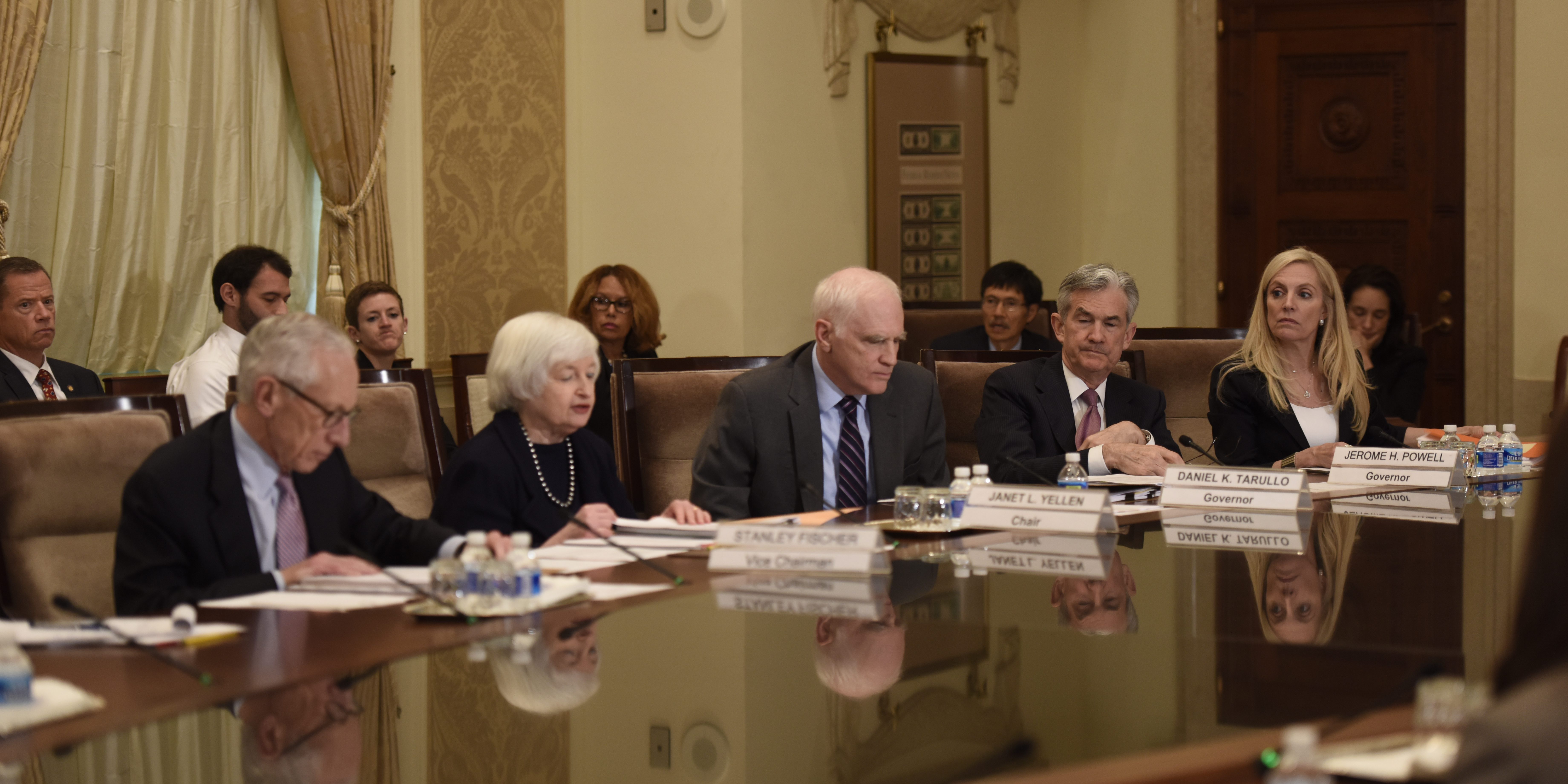Announcement
Collapse
No announcement yet.
Hello 2018 - what can Possibly go Wrong
Collapse
X
-
You What?
I struggle to grasp what's really being meant in the sea of jargon that such pieces contain. But I'll stab a guess, based on this snippet:
I speculate that the prices of land and buildings is what's meant by distorted asset prices.Real economies have been artificially propped up by distorted asset prices, and slow-moving normalization will only prolong this dependency. Yet when central banks’ balance sheets finally start to shrink, asset-dependent economies will once again be in peril.
But just what is an asset-dependent economy?
Sounds a bit like the borrowing binge[s] of the past, based on the "inflationary numbers attached to the prices" of land and buildings. I use that expression in quotes because increasing/ed value is just a mirage when set against the purchasing power of the currency used in any pertinent valuation.
Is an asset-dependent economy one in which over-valued land & buildings are used as collateral to borrow money to buy things to keep an economy running?
And what the hell's a real economy?
As opposed to a unreal/false/imaginary one?
And which sort has NZ got?
Based on the gNats record of - what they describe as prudent financial management - by increasing taxpayer debt from 18 to 80 billion dollars in their nine years in office, perhaps NZ's economy is a fantasy one?
-
The gist of these articles is usually that anyone who is highly leveraged and dependent on the status quo continuing is exposed.Free online Property Investment Course from iFindProperty, a residential investment property agency.
Comment
-
Not a phrase I've heard used before, but I'd imagine it's a distinction between real/nominal, as you do when looking at inflation adjusting future projections.Originally posted by Perry View PostAnd what the hell's a real economy?
The 'nominal economy' might be worth $50B GDP this year, and $120B GDP in 10 years time, but if inflation is 10% each year that's only $46.3B and we've actually gone backwards. In the context of this article, the 'nominal economy' might be worth $750B of gross assets at the moment, but the underlying 'real economy' is only worth $400B because of all this debt-inflation.
All just my take on some jargon-filled economic mumbo jumbo. Could well be wrong.AAT Accounting Services - Property Specialist - [email protected]
Fixed price fees and quick knowledgeable service for property investors & traders!
Comment
-
I found it very hard to read as well.
Like this: "potentially destabilizing global saving arbitrage"
And this: "Yet when central banks’ balance sheets finally start to shrink, asset-dependent economies will once again be in peril. "
How and when do central banks' balance sheets shrink? I thought they only grew?Squadly dinky do!
Comment
-
i think
if you read it again and replace "asset based economy"
with "spending based on the appreciation of assets (real estate, shares etc)
it makes better sense
ie people are looking at the new council valuations, sharemarket etc + buying new cars, boats, more eating out, foreign holidays, craft beers etc
based not on the money they have earned at "work"
but on the rise in value of their assets..........in this case, housing or shares
"real economy" - being the traditional economy - spending based on work done, objects produced, pay rises given etc
in the old days you were advised not to base your spending habits around the amount of overtime you were getting as the overtime would inevitable stop at some stage and you'd be left with spending habits you couldn't afford, and more time to blow your now limited budgetLast edited by eri; 07-01-2018, 05:02 PM.have you defeated them?
your demons
Comment
-
As Morgan Stanley's chief Asia specialist, getting Asia right is Stephen Roach's personal obsession, and this in-depth compilation represents more than 70 of Roach's key research efforts not just on Asia, but also on how the region fits into the broad context of increasingly globalized financial markets. The book argues that the "Asia factor" is not a static concept, but rather one that is constantly changing and evolving. Broken down into five parts–Asia's critical role in globalization; the coming rebalancing of the Chinese economy; a new pan-regional framework for integration and competition; and a frank discussion of the biggest risk to this remarkable transformation–this book will help readers understand and profit from the world's most dynamic region.Last edited by eri; 07-01-2018, 09:36 PM.have you defeated them?
your demons
Comment
-
It is assumed that the quantitative easing of the last decade is going to be reversed at some point. Trillions of dollars that were created out of nowhere are going to disappear. I'd imagine it'll take a lot longer to unwind than it did to inflate - that is, if it ever unwinds.Originally posted by Davo36 View PostHow and when do central banks' balance sheets shrink? I thought they only grew?AAT Accounting Services - Property Specialist - [email protected]
Fixed price fees and quick knowledgeable service for property investors & traders!
Comment
-
Yes doom and gloom is predicted elsewhere too - I was reading online 'Trump Recession' a given either in 2018 or 2019. New Tax Bill may be the overriding trigger - here's an opinion on how the New Tax Bill will affect the RE Industry. Basically any recent growth in values to be wiped out.
cheers,
DonnaEmail Sign Up - New Discussions, Monthly Newsletter, About PropertyTalk
BusinessBlogs - the best business articles are found here
Comment
-
Yes but how do they reverse it?Originally posted by Anthonyacat View PostIt is assumed that the quantitative easing of the last decade is going to be reversed at some point. Trillions of dollars that were created out of nowhere are going to disappear. I'd imagine it'll take a lot longer to unwind than it did to inflate - that is, if it ever unwinds.
I know they inject money into the economy by buying assets like bonds.
So now they're going to sell bonds or something?Squadly dinky do!
Comment
-
The US Federal Reserve can reduce their assets in the following manner:Originally posted by Davo36 View PostYes but how do they reverse it?
I know they inject money into the economy by buying assets like bonds.
So now they're going to sell bonds or something?
1) Let the bonds mature. That means the bond issuer will pay the Central bank the principal payment due at maturity and the final interest payment if any.
2) Sell bonds before they mature into the market
Last edited by Chris W; 09-01-2018, 01:46 AM.
Comment
-
Originally posted by Perry View PostA bond's an asset?
Just like a mortgage is a liability for the borrower, the mortgage is an asset to the bank who lent the money (as the bank collects the interest payments and the principal payments).
The bank could then choose to sell the mortgage to a third party (say an investment fund). Then that third party / investment fund would own the mortgage and be due to all repayments made by the borrower.
Bonds are mostly long term loans to businesses, & governments (most can be bought and sold in the market)Last edited by Chris W; 08-01-2018, 09:06 PM.
Comment




Comment